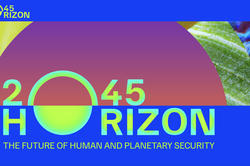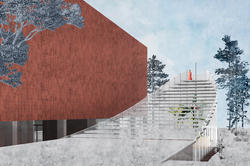An ongoing initiative brings together experts and futurists from around the world to consider planetary policy decisions that increase the odds of our survival.
Center for Complexity Studio Looks Beyond the Anthropocene
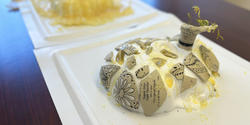
“Visions of the future are always so apocalyptic,” says Center for Complexity (CfC) Senior Lead Tim Maly. “In this studio we’re thinking about more positive ways to envision the future and live through the changes that are coming.”
Maly and CfC Executive Director Justin Cook are co-teaching Design Manuals for the Anthropocene, an advanced studio built on the collaborative research they have been conducting since 2021 aimed at helping current and future generations navigate the planetary and systemic polycrisis we face. The term polycrisis refers to the complex web of entangled crises that demand attention, such as nuclear insecurity, climate change and the threat of pandemics.
In attempting to format their findings as a kind of user’s manual they refer to as “the Draft Design Manual for the Polycene,” the CfC team uncovered a slew of interrelated questions they’re hoping RISD students can help to unravel: Is a manual the best tool to convey this information? Are there related tools people working on these problems need to create better frameworks, principles and approaches in their work? How do instructions, design principles and protocols operate in the era of AI? How can we address existing harms and move towards just and flourishing civilizations?
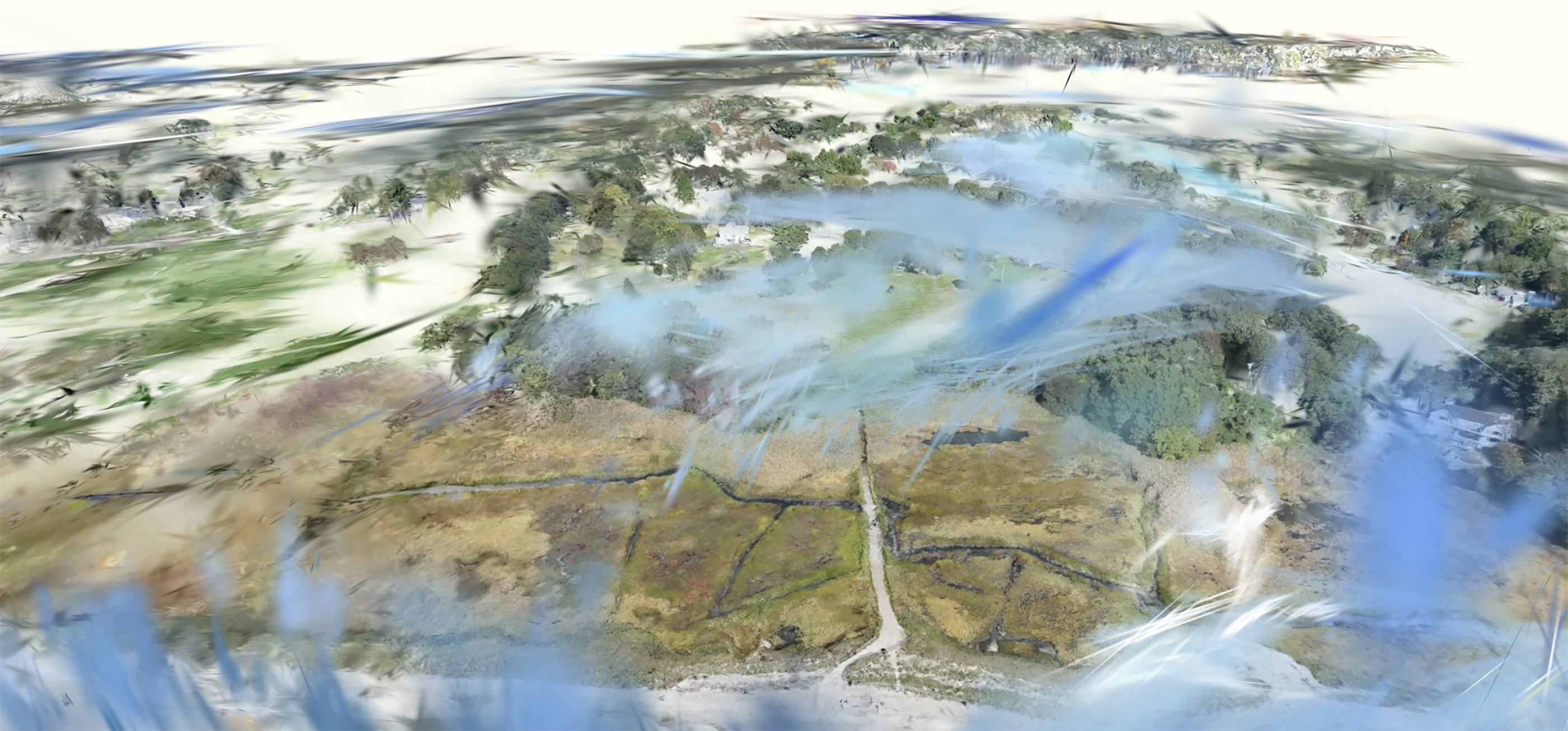
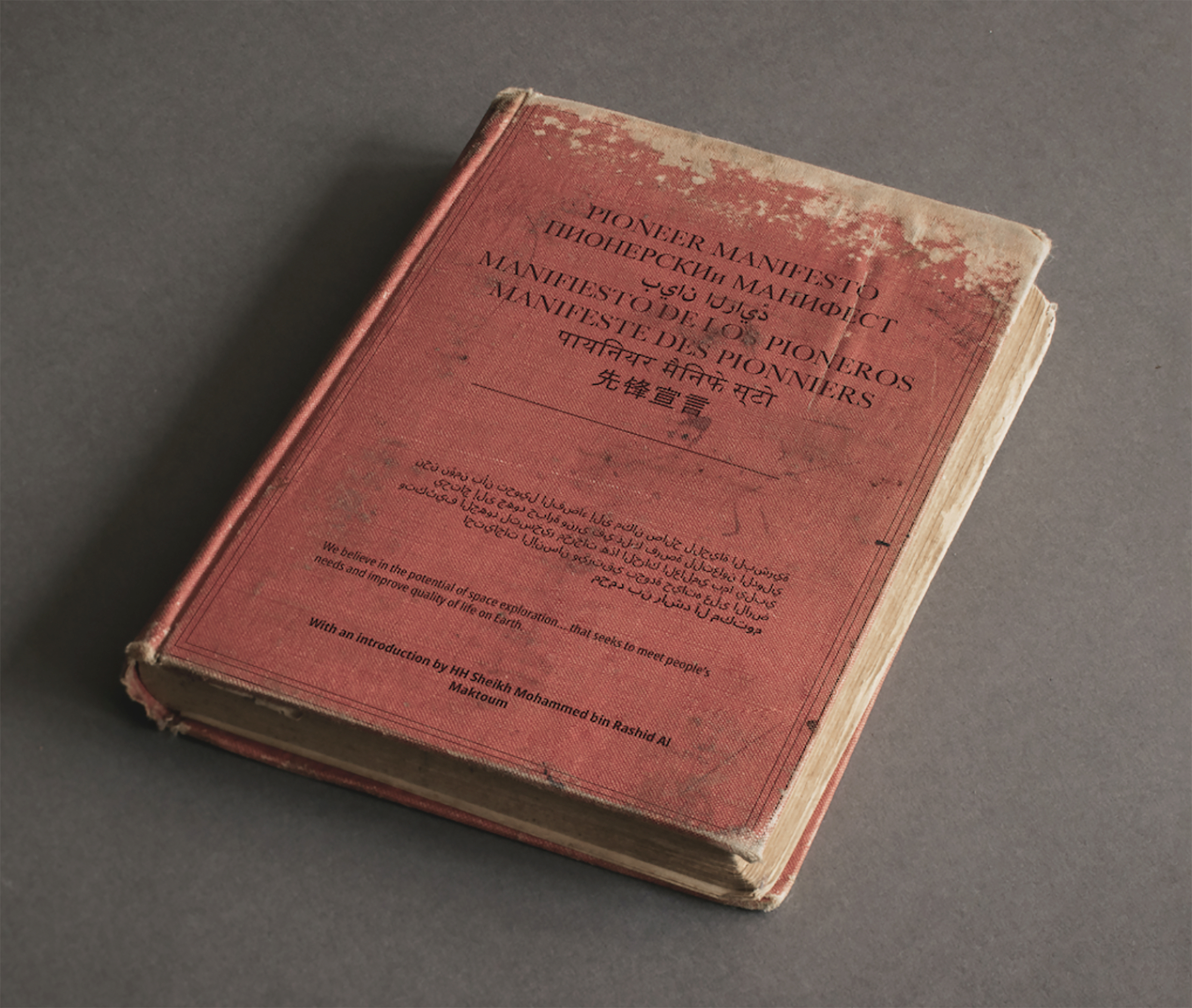
“Manuals guide behavior,” Cook notes. “They collate and distribute hard-won wisdom and best practices. They are at once technical, conceptual and political.”
Grad student Abby Tuckett MArch 24 is attempting to identify and share such best practices while also creating something beautiful. “Our current world of research and funding surrounds quantifiable results … and dismisses the qualitative as unimportant,” she says. “I am making a model people are allowed to touch, manipulate and change that is accessible for everyone, regardless of their background.”
At a mid-semester review in October, visiting critics were taken with Tuckett’s playful approach. “Play is an extremely useful form of learning and an effective way to break down knowledge silos,” noted interdisciplinary artist, Society of Presidential Fellows alum and Theory and History of Art and Design faculty member Lilly Manycolors MA 22 GAC.
Peruvian-American student Santiago Alvarado 24 ID, who is of Quechua descent, is also focused on breaking down knowledge silos, specifically the gap between Indigenous knowledge and Western/scientific expertise. “My project is about reciprocity, community, collaboration, adaptation and survival,” they say. “It’s about navigating and outlasting crumbling systems of governance.”
“In this studio we’re thinking about more positive ways to envision the future and live through the changes that are coming.”
Fellow senior Bangyan (Bobby) Chen 24 ID is pursuing a narrower focus: the drastic effects of climate change on the tiny South Pacific nation of Tuvalu. “I believe that any viable design project should go beyond theoretical discussions to address real-world issues and practical considerations,” he explains.
Chen recalls watching Tuvalu’s foreign minister Simon Kofe delivering a speech for the United Nations while standing in thigh-deep water, urgently drawing attention to rising sea levels worldwide. “Two years have passed since then, and studies indicate that Tuvalu has lost even more land area due to further sea level rise,” he says.
The thread that runs through many of the class’s projects is hope, hope that it’s not too late to take action and that our species will learn to live more harmoniously with the planet in the decades ahead. “People are increasingly looking to designers for solutions,” says Maly. “My hope is that the experiences they’ve had this fall researching evolving social phenomena and developing strategic frameworks for responding to them will empower students to tackle the complex challenges they will face after RISD.”
Simone Solondz / top photo by Isabel Roberts
December 13, 2023
